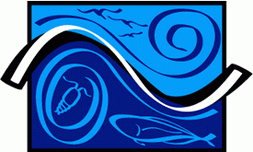



|
NPCREP was established in 2004. NOAA created and funded this initiative to investigate the impacts of climate fluctuation on ecosystems in the North Pacific and Bering Sea. NPCREP seeks to understand climate patterns and their impact on ecosystem dynamics. The project maintains an on-going observing system, monitoring changes and adding to a long-term record of biophysical measurements in these regions. NPCREP is dedicated to |
|
View the NPCREP (PDF) Science and Information Plan |
|
The NPCREP develops guidance about ecosystems status and trends for the NPFMC (North Pacific Fishery Management Council). Significant relationships between climate forcing and ecosystem response, observed and predicted, are published annually in the Alaska Fisheries Science Center's Stock Assessment and Fisheries Evaluation. View NPCREP Progress and Accomplishments (PDFs) for: 2005, 2006, 2007 NPCREP-sponsored Bering Sea shelf ice-edge expeditions: 2006, 2007, 2008 A LITTLE HISTORY: NPCREP is a companion program to FOCI (Fisheries-Oceanography Coordinated Investigated), whose original sole focus was on the walleye pollock fishery in Shelikof Strait, Gulf of Alaska. The FOCI project commenced in1984, and it's scope eventually changed to include long-range recruitment forecasts (1992) and wider ecosystem considerations. To aid the Bering Sea fishery, NOAA began similar programs, Bering Sea FOCI (1991-1997) and Southeast Bering Sea Carrying Capacity (1996-2002). All of these programs are considered to be part of Ecosystems and Fisheries-Oceanography Coordinated Investigations (EcoFOCI) that emphasizes collaboration between AFSC (Alaska Fisheries Science Center), PMEL (Pacific Marine Environmental Laboratory), the University of Alaska, Fairbanks and other government and academic institutions. EcoFOCI is steeped in an ecosystem approach to research and management. |
| EcoFOCI Project Office NOAA/PMEL and NOAA/AFSC |
|
| 7600 Sand Point Way NE Seattle, Washington 98115 Comments and information |
|